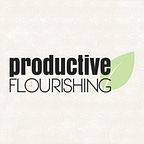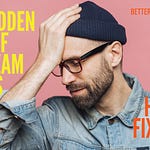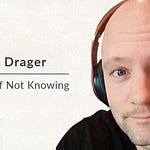Author, poet, and teacher Mark Nepo joins Charlie on the show today to talk about the power of true community. Throughout this episode, Mark talks about how community manifests itself in his new book, More Together than Alone. The book talks about eight worldviews and practices we can apply to our lives. He challenges us to think about how we might incorporate some of these worldview practices into our own lives.
Key Takeaways:
[1:50] - Mark is about to release his 20th book. Over the last ten or so years, his life of poetry and the poetry of life have blurred, and his books have become the trail of his life journey. For him, writing is about listening and taking notes - he follows his stories, his struggles, his confusions, and his questions.
[5:15] - Process is about introspection and transformation. When we can bring all of who we are to a moment, we allow ourselves to be instructed. If we can stay with that moment (often one of discomfort), that’s where we are informed, enlightened, and transformed.
[8:25] - Our heart is the strongest muscle we have. It is most sensitive when it’s working well.
[10:35] - Moderation is about balance, and staying present in the middle of all things. We center our experience, and when it comes to our daily lives, our soul’s awakening is our career, and where that happens is our occupation. Our engagements in life bring us alive, and they bring us together.
[13:50] - Mark’s new book, More Together Than Alone, is all about community. He was inspired by the community he experienced in the treatment and waiting rooms during his own cancer journey. He began researching moments in history when we have worked well together cross-culturally. He began to notice the trends over time, and talks about some specific events in history where the reaction to someone who was different had very negative consequences.
[18:50] - When we encounter someone who is different from us, our actions speak louder than words. If we use the opportunities to learn something new from another person, it could help solidify and strengthen our sense of community with people we maybe didn’t realize were a part of our community.
[20:18] - One key thing to remember is that we are more than what happens to us (more than our actions). Oftentimes, during negative experiences, that is how we choose to see all things. One thing that happens when we’re afraid is that we make our fear and our pain a worldview.
[23:20] - In the book, Mark discusses eight worldviews and practices that we can personalize to help us recognize that we are more together than alone. The first is from the Native American tradition, and it’s the notion of all my relations - we recognize that family is what matters. In the Native American tradition, this includes everything in the universe. The practice that goes along with this worldview is to discover, name, and repair the connections that exist between all things.
[25:07] - From the African tradition, he talks about Ubuntu, which means a person is a person through other people. “We are because of each other.” The practice here is to water our common roots. In nature, a good metaphor for community are aspen groves - above ground they are individual trees, but underground they share one root system.
[26:52] - The third worldview comes from the Hindu tradition, “Thou art that.” This implies that at the heart of things, we are the same. The practice is to feel a life of compassion that honors how we are the same.
[28:07] - The next worldview comes from the Jewish tradition, and it is the “I, Thou” relationship - everything is a living center unto itself. When we honor that in others, and bring our lives to it, then the unrehearsed dialogue of God appears. Our practice is here is learning how to stay committed to honest conversation.
[29:35] - The fifth worldview comes from the Lebanese tradition,”Ya ah uni,” which means “oh, my eyes. Now we can see together.” The idea is that we need each other to see, and welcome other beliefs other than our own. The practice encourages us to be open to other people’s thoughts and ideas about the world.
[30:40] - The next worldview comes from the desert mystic fathers from the early Christian tradition: the wagon wheel. There are three parts to a wagon wheel - the hub, the spokes, and the rim. This worldview suggests that all souls on Earth are a spoke on that wheel, and as we live our lives, no two spokes occupy the same space on the rim. Our unique gifts and talents hold up the community (rim). As we go deeper into ourselves, towards the hub, we all meet in the middle. The Christian tradition says the hub is God. The practice here is to learn how we live out our uniqueness and commonness in the world.
[32:21] - The second to last worldview is the Danish tradition of Hygge, which translates to comfort. The practice is hospitality, and welcoming strangers as well as friends.
[32:42] - The final tradition comes from African bushmen, and is the tradition of greeting. When someone from the tribe returns from hunting and gathering, someone from the village calls out “I see you,” and the person returning says “I am here.” The practice with this worldview is to bear witness to each other, and affirm each other.
[33:45] - The important aspect of all of these worldviews is figuring out how we can personalize them for ourselves, and fit into the world with others. Mark discusses a parable of two monks, and the open-ended choice at the end of the parable speaks to what kind of world we’re living. If we insist on keeping our appointment (whatever it is) over opening our heart and working with what we’re given, we’re leaning toward cruelty.
[38:13] - Working for what we want is an apprenticeship for working with what we’re given. In that action, that’s where our greatness reveals itself. We are often able to give more than we think we can give. This applies not only to others, but also to ourselves.
[40:05] - In his thirty or so years of writing, one thing became clear across all stories and traditions. When difficulty, pain and fear make us think that self-interest will protect us, love and suffering affirm that we’re more together than alone. Another thing that was affirmed is that the people who have given the most throughout history are the people who have the least.
[44:05] - We gain wisdom from our direct experience, but if that’s all we rely on, we’re in trouble. We have to allow ourselves to also receive and learn from the experiences of others. Those two together is at the heart of community.
[46:55] – At the end of the book, there is a picture of a blind boy. It was taken by a WW2 photographer, and it was a small boy from Italy who was not only blind but also had lost both of his arms. The picture is of the boy learning to read Braille with his lips. On the surface, it’s a very sad image, but when you stay with it longer, it is at the heart of resilience. No matter what’s taken away, we’ll read with our lips, and continue to learn.
[49:05] – We can all identify as all of the people in the photograph, including the photographer that made it come alive. We are all of these things, and wisdom supports us on this journey through life and community. As we go through life, we are working to make sure there is one more healthy soul in the world than unhealthy, so we can speak to the health of humanity.
[52:00] – Mark’s invitation and challenge for listeners is to affirm our humanity and our oneness every day. Find one way each day to do that, whatever it might be. Be aware of who is around you, and help them so we can move forward together.
Mentioned in This Episode:
More Together Than Alone, by Mark Nepo












